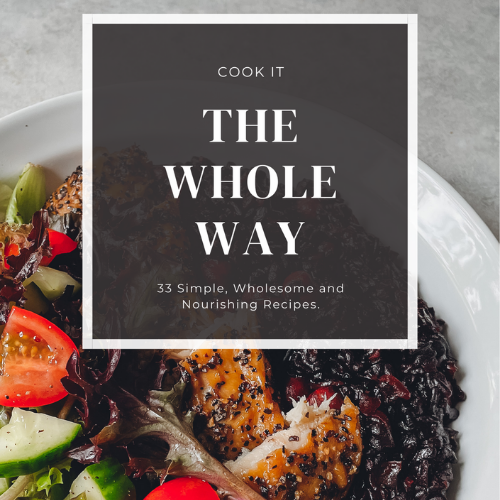
DASH Diet and Regular Exercise Lowers Treatment-Resistant High Blood Pressure
A structured dietary approach to stop hypertension (DASH) diet plan with regular aerobic exercise can significantly lower blood pressure in people with treatment-resistant high blood pressure (hypertension), a new randomised clinical trial (NCT02342808) suggests.
Notably, regular behaviour change counselling sessions were equally essential because participants who had regular counselling sessions with the structured diet and exercise programme reduced their blood pressure by over 5 mm Hg more than participants who followed similar diet and exercise guidelines without regular counselling.
“Our findings showed lifestyle modifications among people with resistant hypertension can help them successfully lose weight and increase their physical activity, and as a result, lower blood pressure and potentially reduce their risk of heart attack or stroke,” James Blumenthal, PhD, first and senior author of the study said in a press release.
“While some people can make lifestyle changes on their own, a structured programme of supervised exercise and dietary modifications conducted by a multidisciplinary team of health care professionals in cardiac rehabilitation programmes is likely more effective,” Blumenthal added.
The study, “Effects of Lifestyle Modification on Patients with Resistant Hypertension,” was published in Circulation.
Treatment-resistant hypertension – blood pressure that remains above 130 / 80 mm Hg despite using at least three different, optimally dosed antihypertensive drugs, including a diuretic – affects around 5% of the population and 20% to 30% of people with hypertension. People with cardiovascular disease (CVD) risk factors such as obesity, type 2 diabetes, and chronic kidney disease are affected even more.
Since treatment-resistant hypertension increases the risk of organ damage, stroke, and death, identifying effective treatments to lower blood pressure in people with treatment-resistant high blood pressure is crucial.
Several studies have shown that regular exercise and dietary changes, particularly weight loss with the DASH diet, can effectively lower blood pressure.
The DASH diet emphasises fruit, vegetables, whole grains, fish, poultry, legumes, seeds, nuts, low-fat or fat-free milk and milk products. It limits foods high in salt, and saturated fat, such as fatty meats, full-fat dairy products and tropical oils, such as coconut, palm kernel, and palm, as well as sugar-sweetened beverages and sweets.
Although the DASH plan with regular exercise can lower blood pressure in people with unmedicated high blood pressure, there is limited information on its benefits in people with treatment-resistant hypertension.
To learn more, a team of scientists at Duke University, North Carolina, sought to investigate whether the DASH diet with regular exercise and behaviour change counselling sessions could lower blood pressure in people with treatment-resistant hypertension.
Scientists began enrolling participants for the Treating Resistant Hypertension Using Lifestyle Modification to Promote Health (TRIUMPH) study between June 2015 and October 2019.
A total of 140 participants with treatment-resistant hypertension who met the study’s eligibility criteria were included. The mean age of the cohort was 63 years, 48% were female, and 59% were Black.
Ninety individuals were randomised to the centre-based lifestyle intervention (C-LIFE), which involved the DASH diet, a 45-minute weekly group counselling session and a 30-45-minute exercise session performed three times per week.
The remaining 50 participants were randomised to the standardised exercise and physician advice (SEPA) group. These participants received a one-hour educational session on blood pressure management with a personalised DASH diet and exercise plan. Participants in the SEPA group did not receive weekly counselling sessions.
Participants in both groups followed their intervention plan for four months. At the start and after the four months, the scientists measured the participants’ blood pressure, body weight, aerobic fitness and markers of CVD risk.
Participants followed the treatment plan closely; a median of 94% attended DASH diet classes and 89% the structured exercise sessions. However, participants in the C-LIFE group improved their aerobic fitness more than those in the SEPA group. C-LIFE participants also achieved greater weight loss (-15.3 lbs vs. -8.5 lbs) and lower urine sodium loss than the SEPA participants.
Compared with the SEPA participants, C-LIFE participants had lower systolic (top number) pressure and diastolic (bottom number) blood pressure. C-LIFE participants also had greater blood pressure reductions than SEPA participants, -12.5 mmHg vs. -7.1 mmHg, respectively.
After the intervention, participants in the C-LIFE group maintained significantly lower systolic and diastolic pressure than the SEPA group, 126.4/67.2 mmHg vs. 133.2/72.9 mmHg, respectively. CVD risk biomarkers were also more improved in the C-LIFE than SEPA group.
Interestingly, participants in both groups continued to use similar amounts of medication despite their improved lifestyle.
“The most important point is that it is not too late to lower blood pressure by making healthy lifestyle choices,” Blumenthal said. “Adopting a healthy lifestyle pays huge dividends, even for people whose blood pressure remains elevated despite being on three or more antihypertensive medications,” he added.
A limitation of the study is that it was conducted at a single site. Therefore, the study results may not be generalisable to broader groups. However, the trial was delivered at multiple cardiac rehabilitation facilities in central North Carolina and broadly represented different ethnicities with varied educational and cultural backgrounds. So, a wide range of people can benefit from similar interventions.
“Though we usually think about recommending lifestyle changes like losing weight and getting more physical activity before starting medications, this study provides important reinforcement that adding lifestyle changes in conjunction with medication – and when medications alone are not doing the job – is an effective strategy,” Bethany Barone Gibbs, PhD, American Heart Association volunteer expert, and associate professor at the University of Pittsburgh said.
However, individuals with hypertension will need to continue these lifestyle modifications to maintain lower blood pressures and lower their risk of severe complications.
“The benefits of the lifestyle modifications may be reduced unless the healthy lifestyle habits can be maintained,” Blumenthal said.

A Nutritionist’s Perspective – What this study means for you
The DASH diet plan may be beneficial for you whether or not you have high blood pressure. It is a great approach to eating as it emphasises whole foods and limits processed foods. And as the study clearly shows, people who get regular support from a health professional fare better with lifestyle modifications than people who do not.
If you’ve been struggling to change your habits, working with a professional may be exactly what you need to succeed.
I offer personalised diet plans with regular 1:1 coaching sessions to help my clients change their eating habits. If you know you will benefit from regular support, please click HERE to learn how I can support you.


